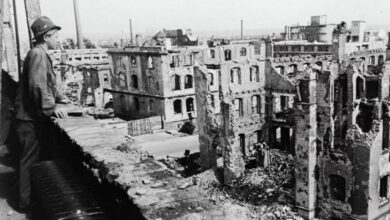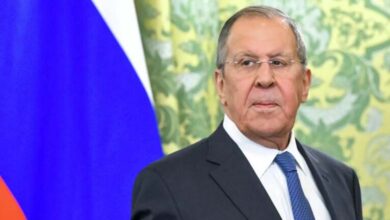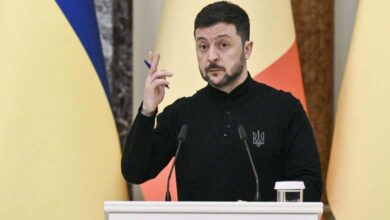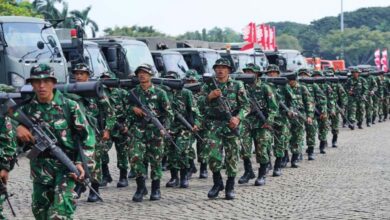Masoud Pezeshkian denies neighboring countries’ complicity with Israel
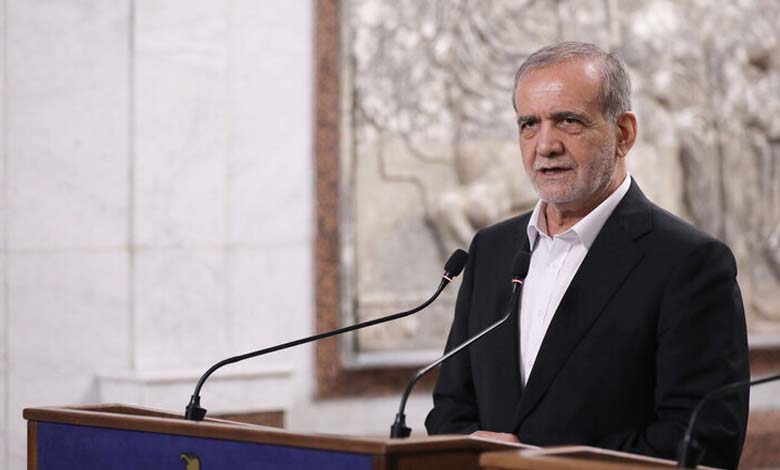
In a significant shift from the traditionally confrontational rhetoric adopted by some Iranian institutions toward Arab neighbors—especially Gulf states—Iranian President Masoud Pezeshkian stated that Iran’s intelligence agencies have found no evidence of military or logistical support from neighboring countries for Israel’s recent attacks on Iran. This assertion effectively clears these states of any alleged involvement.
-
Iranian President Approves Suspension of Cooperation with IAEA
-
Iran Postpones Implementation of Strict Hijab Rules to Avoid Domestic Unrest
His comments come amid media speculation suggesting that some regional countries may have enabled or facilitated Israel’s mid-June assault, either by providing access to airspace or logistical support.
Speaking at a local gathering, Pezeshkian told Iranian media: “Contrary to the circulating claims, our security agencies have not confirmed any military cooperation between neighboring countries and the Zionist regime. On the contrary, some of these nations even expressed readiness to offer humanitarian aid during the crisis.” He stressed that Iran prioritizes strengthening fraternal ties with its neighbors.
-
Bazeshkian explores, in his first meeting with al-Burhan, the expansion of Iranian influence in Sudan
-
From Tehran to Makran: Why Iran Wants to Change Its Capital
These remarks are widely seen as an attempt to recalibrate ties with Gulf countries, which have previously faced harsh criticism from Iranian military officials, particularly senior figures in the Islamic Revolutionary Guard Corps, who accused certain Gulf capitals of aligning with Western military efforts against Tehran. However, the Gulf Cooperation Council (GCC) countries have officially opposed escalation and condemned any attack that threatens regional stability.
During the Israeli strikes, supported by the United States, no Gulf state issued statements suggesting complicity or endorsement. Instead, official statements called for restraint, de-escalation, and non-interference in regional affairs. Furthermore, U.S. airstrikes on Iranian military and nuclear facilities were reportedly not launched from American bases in the Gulf, according to Western sources.
-
Who Will Decide the Presidential Elections in Iran? An Expert Reveals the Details
-
Iran’s intelligence minister announced that the regime had excluded candidates
On June 13, Israel, with direct U.S. support, launched a wide-scale attack on Iranian soil lasting 12 days, targeting military sites, nuclear research centers, and civilian infrastructure. The strikes also included assassinations of senior military commanders and nuclear scientists. Pezeshkian described the assault as a deliberate attempt to weaken Iran, stating that “the real winner is the Iranian people, who demonstrated extraordinary unity and resilience.”
In response, Iran launched a barrage of ballistic missiles and drones targeting strategic military and intelligence facilities deep inside Israel, resulting in casualties and significant damage. On June 24, the United States announced a ceasefire agreement between both sides, brokered through regional and international mediation to prevent a broader conflict.
-
Washington Reveals Iranian Plan to Close Strait of Hormuz During War with Israel
-
Iran Holds Official Funerals for Military Commanders and Scientists Killed in Israeli Strikes
Pezeshkian praised the “national unity” displayed during the conflict and emphasized the leadership of Supreme Leader Ali Khamenei in guiding Iran’s response. He also underlined the importance of establishing strong regional relationships free from suspicion and hostility.
In essence, his remarks serve as a dual message of de-escalation: one aimed inward to consolidate domestic support, and the other directed at Gulf nations, signaling Iran’s desire to open a new chapter of cooperation and peace. While challenges remain, Pezeshkian’s rhetoric reflects a more pragmatic tone that could pave the way for renewed trust across the region.





